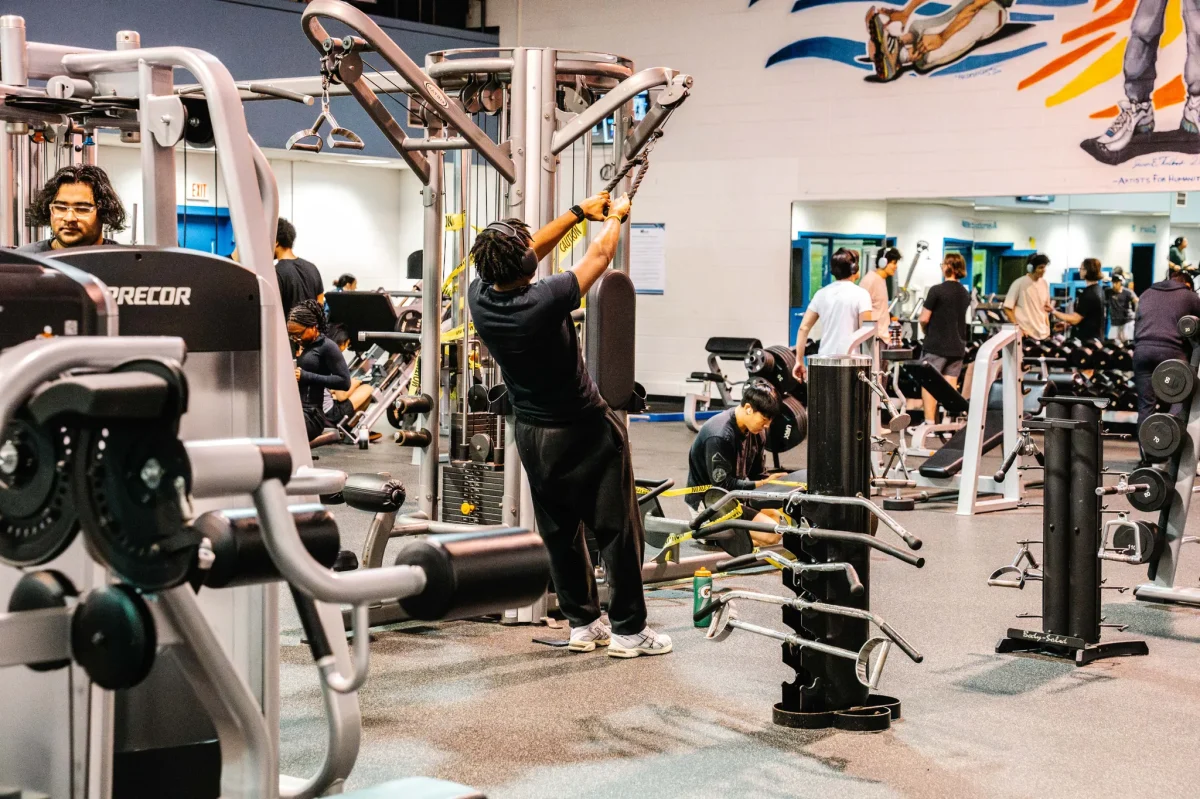The world feels like it’s closing in on many students. I’ve personally had the roughest month that I’ve had in years, and we’re only in February! But a lot of my conversations with friends and colleagues, I’ve seen that my feelings aren’t unique.
With personal financial issues, school, and the state of our world, everything has made me feel hopeless. I’ve tried doing everything within my power, but certain things are just out of my control. Surrendering to what you can’t change and working on what you can is much easier said than done.
I’ve seen how anxiety persists in my life and with the world feeling more catastrophic, I’ve noticed how easy it is for me to spiral into pessimism and fear. These feelings seem common amongst my other friends, even those without an anxiety diagnosis.
This is why I’ve tried to find tricks that help me and my friends. People work differently, and when it comes to worldly stress, we all need different outlets that work for us and our personalized needs.
One of the biggest things that I’ve found helpful is community. The world’s problems will always feel bigger when we think we’re alone in our struggles. However, meeting with our support systems, even if it’s one-on-one, has the ability to change our perspective.
When my friends and I talk about each other’s fears and anxieties, we may not have the answers to help, but simply speaking about them takes away their power. Voicing our struggles makes us stronger, as we can see that our unity is something to be thankful for in this chaotic world. We should never underestimate the capability that talking to our communities can do for us.
Other tips that have worked for many are more scientifically grounded. My biggest suggestion trying to spend time outside. We often hear that if we’re stressed or overwhelmed, we should try spending 20-30 minutes outdoors to reset. While it seems super simple, this method really is essential for a human’s mental health.
The reason why is because our amygdala (which control our emotional regulation) can be harmful if constantly activated. With being easily connected to the internet and stressful outlets, this over activates the amygdala as chronic and perceived stress can cause inflammations to this important mental region. This causes the mind to be more susceptible to mental illness such as anxiety and depression.
To reduce the amygdala to a heathy level, it’s shown that being outside for the recommended amount of time does wonders, offering an easy and free method to regulating some mental disorders and returning to a balanced mental state.
In our capitalistic society, it’s one of the only things we can still do for free that is healthy and important for our bodies. Our country’s healthcare system depends on our declining health and cumulative conditions, so taking care of ourselves is a form of self-preservation, resistance, and independence.
The final tip is physical movement. In recent decades, we’ve had to move less and less than generations past. I work a desk job and while also being a student I often find myself sitting for hours a day without ever getting up. This is not how our bodies were created to behave, and many people are impacted negatively from such a sedentary lifestyle.
Spending time in nature is essential for our health and mental state, but exercise is equally important. Exercise has an intimidating culture that makes new people nervous to learn, but it is meant to be accessible for everyone. And for UMass Boston students, our Beacon Fitness Center is freely included in our tuition, allowing it to be something everyone can benefit from!
Working out shouldn’t be solely to change our bodies. Exercising offers longevity of life, and even if doing so isn’t your goal, living comfortably should be. As someone with an autoimmune disease that already leaves me at a heightened risk of heart attacks and strokes, I take my physical health very importantly.
I’ve witnessed people who have sat for most of their adult lives already starting to develop physical conditions that limit their mobility; some conditions that they didn’t expect to start until their late 50s. Working out directly decreases stress hormones like cortisol, improves certain health conditions, and mental health.
The world is horrifying and the state of it all can be overwhelming, but by making small changes here and there, we’ll find that there are good things left in this world. Humans have survived so much and even though our worries feel overwhelming, there is still so much to be thankful for. Our health, our communities, and our planet’s nature offer all the tools we need to approach life’s problems with a little more strength and joy.



